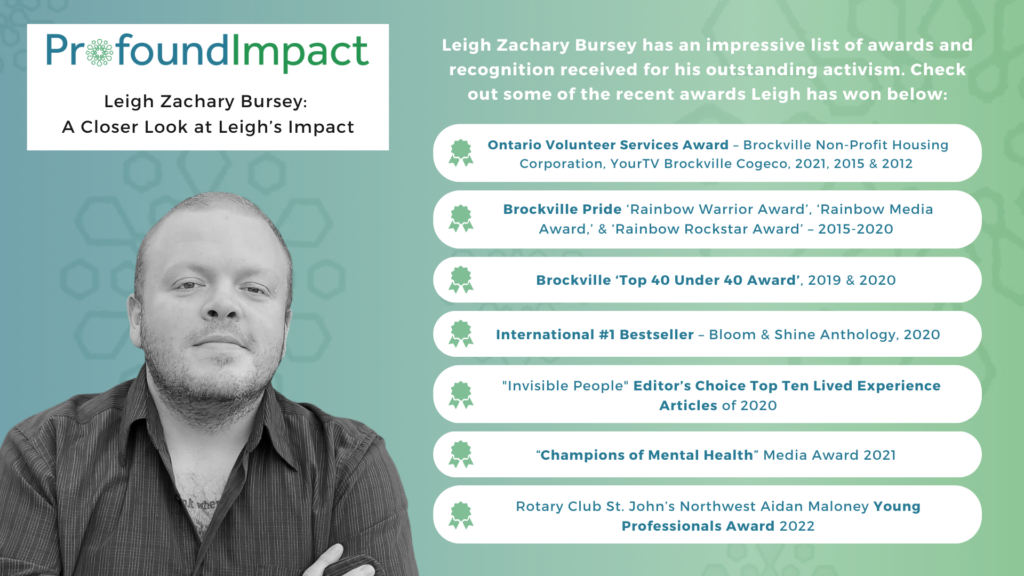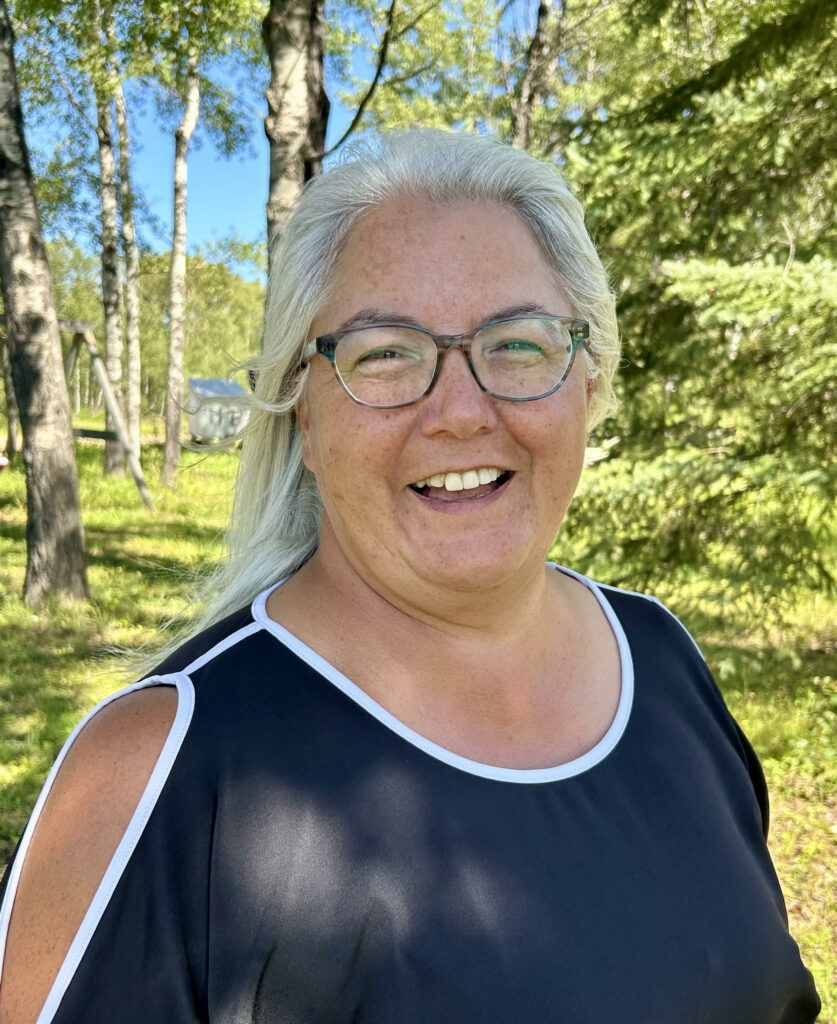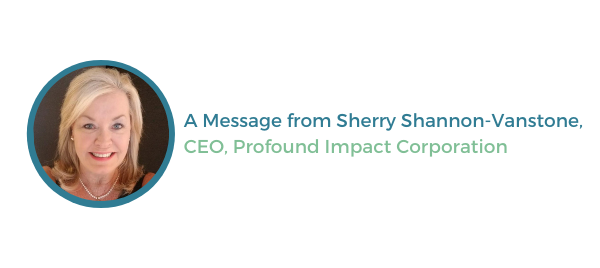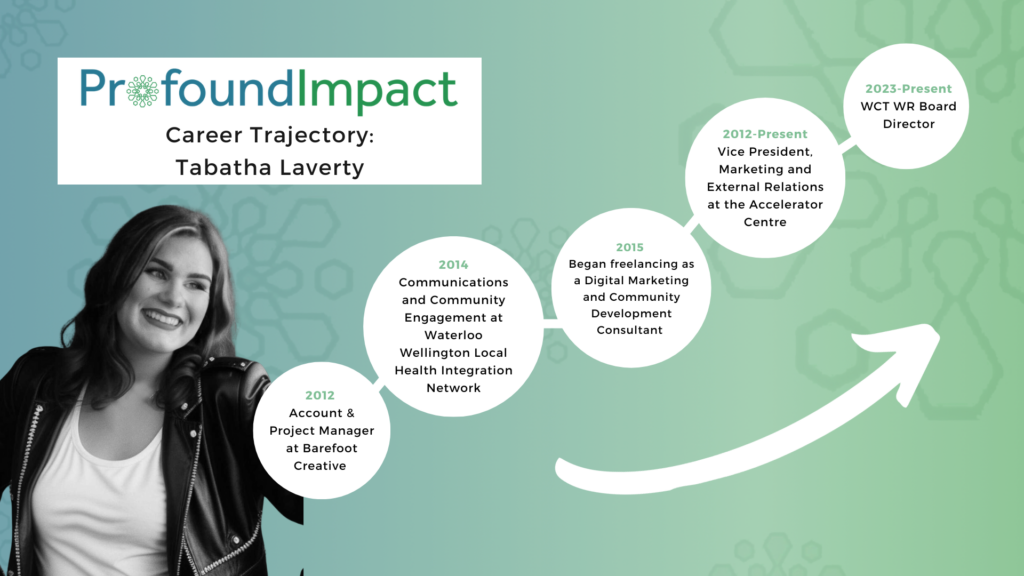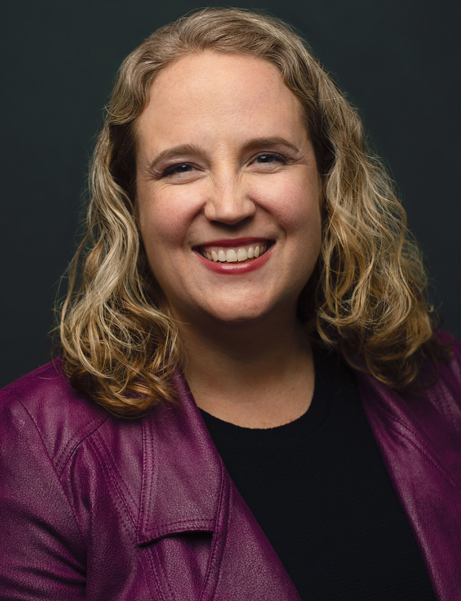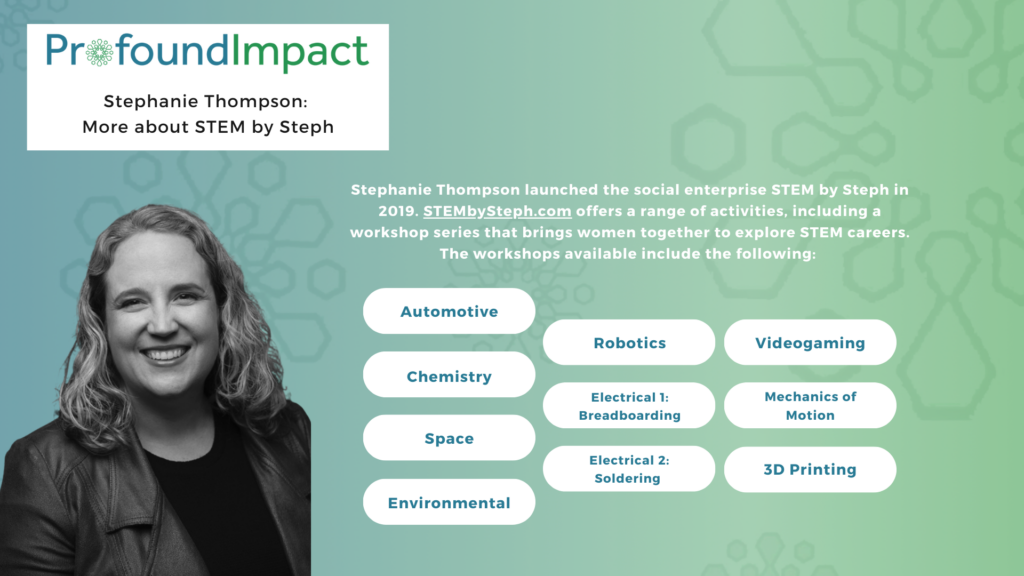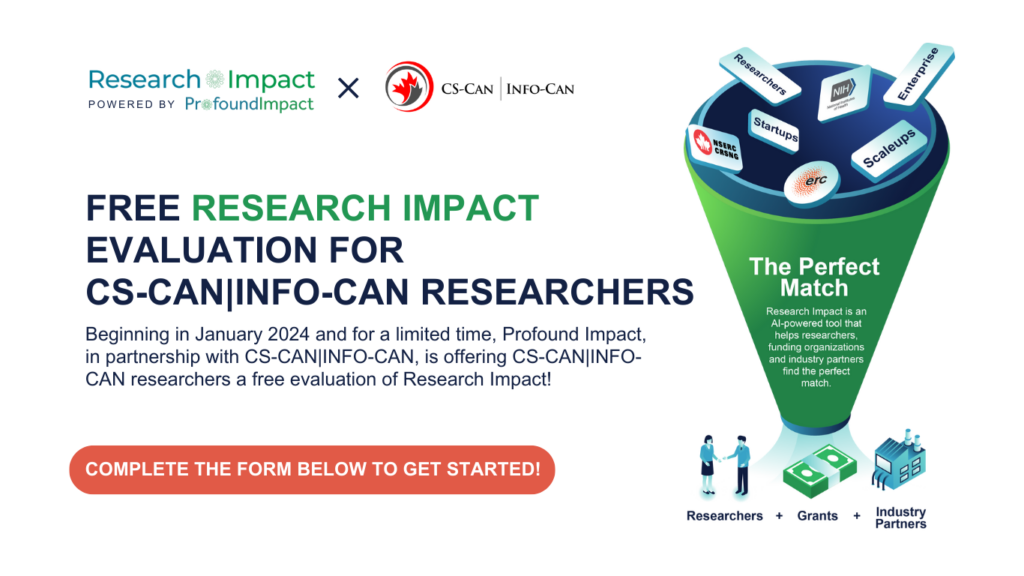PARTNERSHIP TO TRANSFORM COMPUTER SCIENCE RESEARCH FUNDING IN CANADA
FOR IMMEDIATE RELEASE
A recent partnership between CS-Can|Info-Can and tech startup Profound Impact creates the potential for Computer Science researchers to access new sources of funding.
WATERLOO, ON | JANUARY 23, 2024 — Profound Impact™ Corporation, a technology company based in the Toronto-Waterloo corridor, is excited to announce its partnership with CS-Can|Info-Can, an organization with over 60 member Computer Science departments across Canada that aims to foster excellence in Computer Science research and higher education.
As part of this partnership, Profound Impact will provide CS-Can|Info-Can member Computer Science departments and researchers with free evaluations of Research Impact, Profound Impact’s AI-driven researcher to funding matching tool. Research Impact uses proprietary AI-powered algorithms to match industry and academic researchers with the over $300-billion available in funding opportunities worldwide.
“We are thrilled to embark on this transformative partnership with Profound Impact™ Corporation, as it signifies a significant stride forward for our CS-Can|Info-Can members. Profound Impact’s commitment to providing free evaluations of Research Impact, their cutting-edge AI-driven researcher-to-funding matching tool, aligns perfectly with our mission to foster excellence in Computer Science research and higher education across Canada. This collaboration opens doors for our member Computer Science departments and researchers, addressing the funding challenges that often hinder the expansion of vital research initiatives. We believe this partnership marks the beginning of a fruitful series of collaborations, empowering our members to achieve their funding goals and contribute to the advancement of Computer Science research in Canada.” says Gina van Dalen, Executive Director CS-Can|Info-Can.
This partnership with CS-Can|Info-Can is the first of a series of collaborations with researchers across Canada as Profound Impact works with industry leaders and researchers to initiate new research funding connections to help Canadian research institutions and their partners meet their funding goals.
“Computer Science research drives technological innovation. Yet many researchers and departments struggle to find funding to continue and expand their research,” says Profound Impact President & CEO, Dr. Sherry Shannon-Vanstone. “We are excited to offer this solution to the CS-Can|Info-Can membership. We all succeed when researchers get the funding they need to continue to innovate.”
–30–
ABOUT PROFOUND IMPACT™ CORPORATION
Based in the Toronto-Waterloo technology corridor, Profound Impact’s AI-powered tool – Research Impact – helps academic and industry researchers find the perfect funding match. With over $300 Billion in research funding opportunities, 100,000s industry partners and 8.8 Million researchers globally, finding the optimal grant for academic and industry innovators is often overwhelming and unnecessarily time-consuming. More than just a search engine, Research Impact offers automatic, targeted and timely matching. Profound Impact’s customers include top North American research institutions, universities and industry partners. CEO and Founder Sherry Shannon-Vanstone is a serial technology entrepreneur with an unparalleled track record. She has had five successful start-ups and exits in Silicon Valley and Canada, including two IPOs and acquisitions.
About CS-Can|Info-Can
CS-Can|Info-Can counts among its members more than 60 Canadian organizations active in computing research: academic departments of computer science and computer engineering; laboratories and centres in industry, government, and academia; and affiliated professional societies. CS-Can|Info-Can works with these organizations to represent the computing research community and to effect change that benefits both computing research and society at large.
Visit us at www.profoundimpact.com
Connect with us at
Facebook: @aprofoundimpact
Instagram: @aprofoundimpact
LinkedIn: Profound Impact Corporation
Twitter: @aprofoundimpact
YouTube: @profoundimpactcorporation
For media inquiries, please contact:
Durrell Communications


